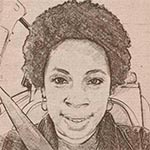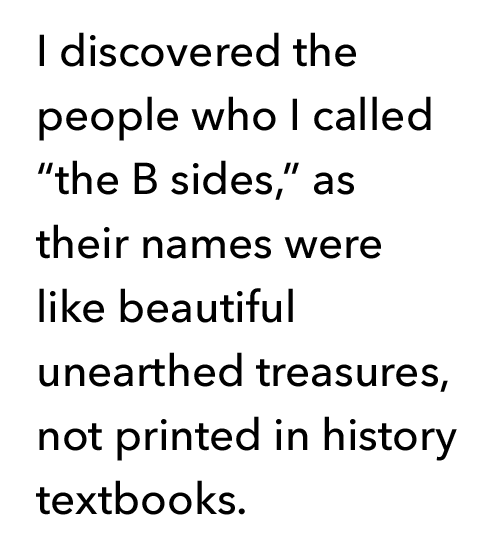 Angela Ferrell-Zabala is the Director of African American Leadership and Engagement for Planned Parenthood Federation of America.
Angela Ferrell-Zabala is the Director of African American Leadership and Engagement for Planned Parenthood Federation of America.
This Black History Month, we find ourselves in difficult and trying times — with increased attacks on women's reproductive autonomy, gaps in economic opportunity, and over-policing of black communities (just to name a few). These issues didn't just begin this year, of course. That’s why it’s so important to take this time, this month, to reflect on the long narrative of these challenges in the black community, as well as remember our resilience, faith, and innovation as we collectively look toward solutions.

That sounds like a no-brainer (of course we’d reflect on that this month), but how can we do it in the most meaningful way? I wonder this because, from early childhood and well into my teens, the phrase Black History Month fell flat. Not that I wasn’t excited about a special (albeit cold) month dedicated to black history and culture (after all, this was what the month was set aside for, right?). I’d heard the stories about brilliant, bold, and prophetic people like Harriet Tubman, Martin Luther King Jr., and Rosa Parks. But I heard the stories again and again without modification, like clockwork — my existence laid out in a few short paragraphs laden with insurmountable obstacles. This is where the disconnect happened, where the “flat” was so palpable.
 My need for a rich, three-dimensional narrative bubbled up. I started searching for the complete story. Soon enough, I found myself lost in books, pictures, and music. And I fell in love with many more of those who came before me, those whose names were not engraved on the monuments. I discovered the people who I called “the B sides,” as their names were like beautiful unearthed treasures, not printed in history textbooks. These were unsung American heroes like Dr. Rebecca Lee Crumpler, who basically started the whole health-care-for-underserved-black-communities thing, and Maggie Walker, who founded one of the first banks that provided loans in the black community at a time when few black people could get loans from white-owned banks.
My need for a rich, three-dimensional narrative bubbled up. I started searching for the complete story. Soon enough, I found myself lost in books, pictures, and music. And I fell in love with many more of those who came before me, those whose names were not engraved on the monuments. I discovered the people who I called “the B sides,” as their names were like beautiful unearthed treasures, not printed in history textbooks. These were unsung American heroes like Dr. Rebecca Lee Crumpler, who basically started the whole health-care-for-underserved-black-communities thing, and Maggie Walker, who founded one of the first banks that provided loans in the black community at a time when few black people could get loans from white-owned banks.
Knowing stories like these, I felt like I was getting the complete story of black history and culture. But that wasn’t the end of the story. The narrative of the black community is continuous and fluid. In my search for the truth about my community’s history, I came to realize that the story continues to expand beyond anything that I can read in books (even those that include my “B side” heroes).
As an adult, I now love that fact that completion is less important than the recognition and continuation of the story. What’s more, I see the importance of telling this continuing story as priceless not only for the black community — but for all of us.
That’s why Planned Parenthood is celebrating leaders who are breaking racial barriers. These 99 Dream Keepers are activists and artists, innovators and storytellers and faith leaders, resilient and unwavering, helping us to live our best lives. Their efforts are helping to ensure that everyone receives quality health care, and that we can live in safe and healthy communities.
Planned Parenthood would not be able to do the work of providing the highest quality health care — and fighting for women’s health and rights — without bold leaders like the 99 Dream Keepers paving the way for all of us. They are part of the continuing story (both A-sides and B-sides), and their stories speak to me about why Black History Month is so important at this moment in American history.
I am proud to be a part of this beautiful and complex narrative. What’s more, through my work with Planned Parenthood Black Community (and simply walking in this world), I have come to relish the continuation of our stories.
Tags: Black History Month, 99 Dreamkeepers, PP Black Community, Martin Luther King Jr., Harriet Tubman, Rosa Parks


